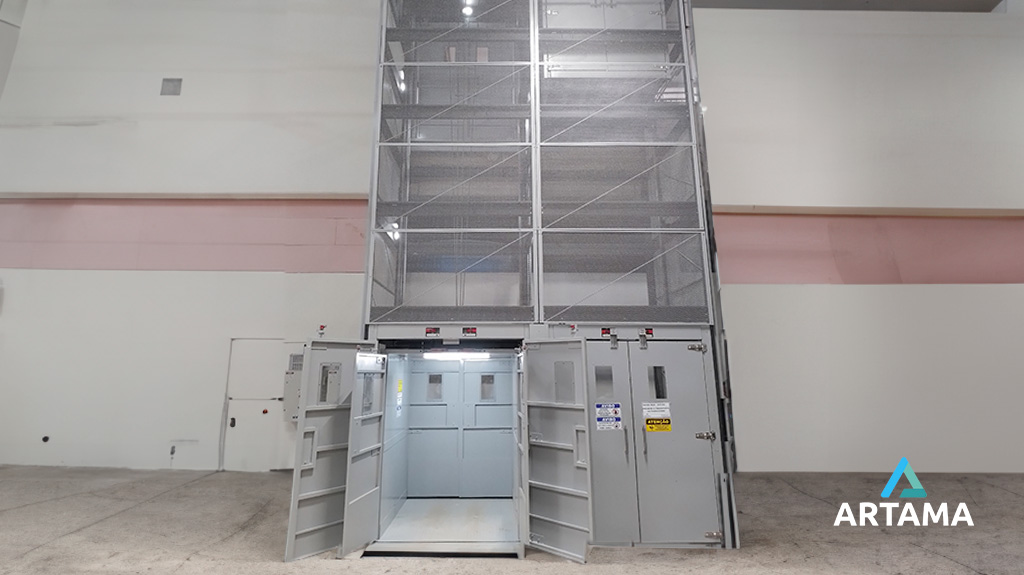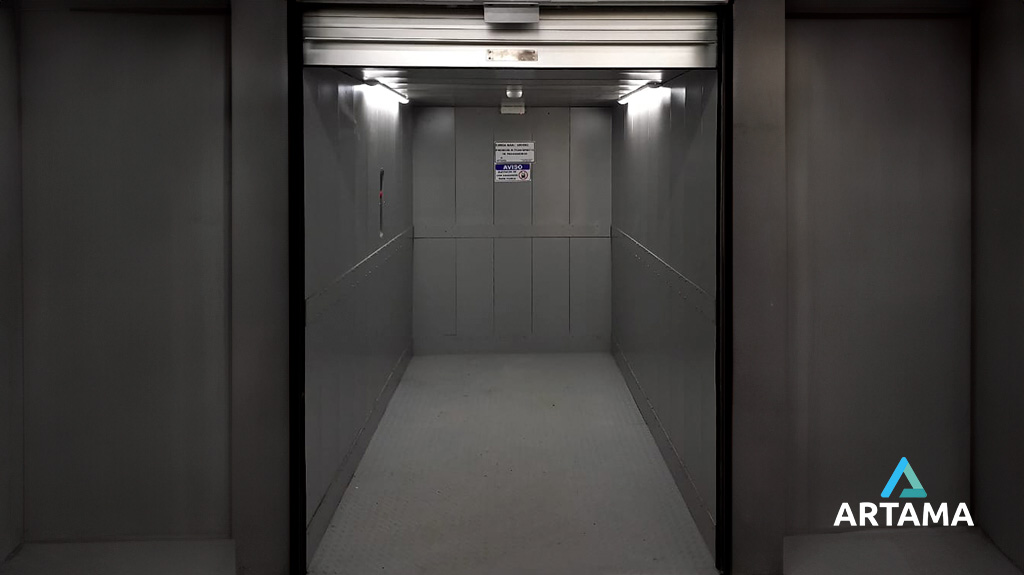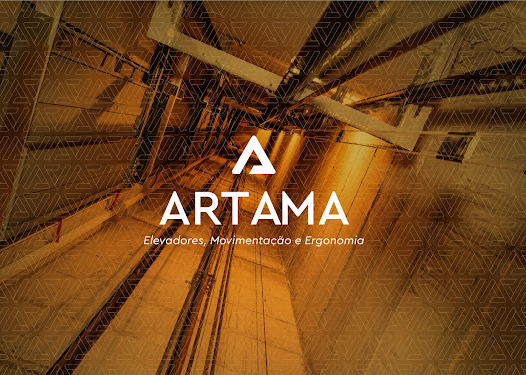Industrial elevators have become essential equipment not only for facilitating the transportation of goods but also for preventing accidents that could result in product loss or harm to employee health. The use of industrial elevators has significantly reduced the occurrence of accidents during the transportation of loads between floors and has also improved workplace ergonomics.
Previously, employees needed to exert more physical effort to move heavy loads, which often compromised their posture. With industrial elevators, it is now possible to transport large volumes quickly and safely.

Industrial elevators must comply with several Regulatory Standards (NR) and Brazilian Standards (NBR), such as NR-12, which deals with safety in machinery and equipment, and NBR 14712, a specific Brazilian standard for freight elevators. It is crucial to hire a specialized company to conduct an on-site inspection to assess the conditions and location where the freight elevator is installed.
However, simply implementing an industrial elevator in operations is not enough to ensure employee safety and health. Proper training on the correct use of the equipment and measures to ensure the elevator functions well during operation are essential.
Additionally, maintaining the safety of an industrial elevator requires attention to three critical factors: the project, usage rules, and maintenance processes.
Project – The implementation project for an industrial elevator must consider the operation’s specifications, such as defining the elevator’s capacity to meet operational demands and making necessary changes to the workplace’s physical structure. Ideally, the project should be developed with a specialized company, where qualified technicians will assist in gathering the crucial information needed to select an elevator model that will operate safely and efficiently.
Usage Rules – Adopting best practices in the use of industrial elevators promotes a safer environment and helps prevent accidents.
Periodic Maintenance – This is crucial for maintaining and extending the equipment’s lifespan and ensuring safe usage. The maintenance process should be conducted by specialized technicians from the company responsible for the elevator’s manufacture and installation.
Industrial elevators significantly facilitate operations by increasing productivity, optimizing work processes, and enhancing safety to preserve the ergonomic health of employees. Working safely and conscientiously is a simple measure that can prevent numerous operational issues.



